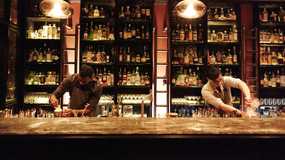Neighbourhood bars / Global
Sure shots
Nothing beats the warm embrace of a bar or café and whether it’s a speakeasy in Singapore or a cosy Torinese institution, we have found the most welcoming ones across the globe.
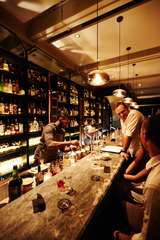
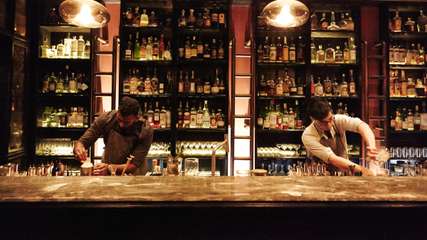

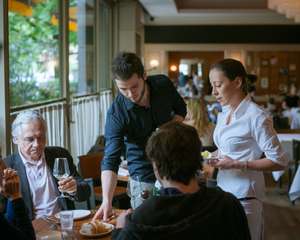
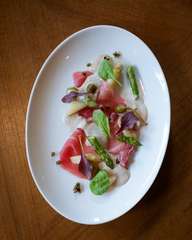
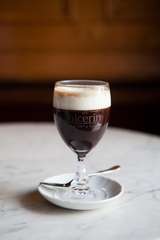
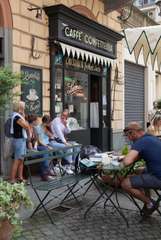
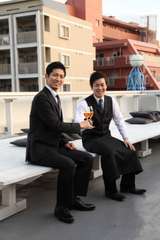
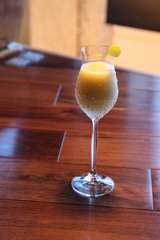
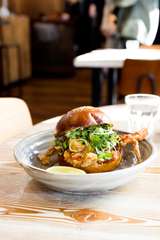
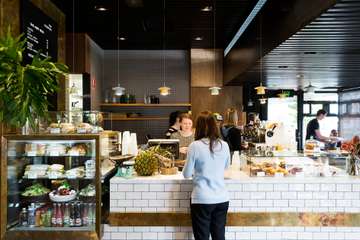
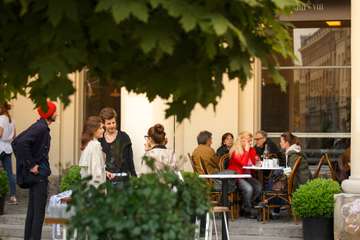

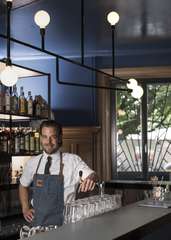
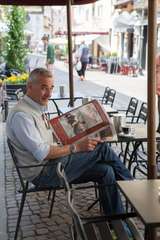
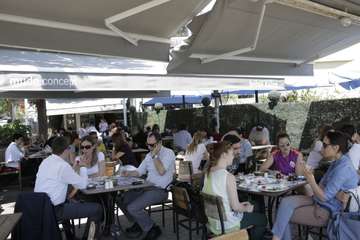
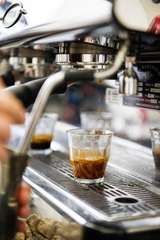
01.
28 Hong Kong Street
Singapore
Speakeasy-inspired bar 28 Hong Kong Street (just 28 for short) is a case study in how a street can be transformed by a single establishment. When New Yorker Spencer Forhart launched it with two friends in 2011, the strip was an easily missed road in Clarke Quay. “If you said ‘Hong Kong Street’, long-time residents would often draw a blank,” he says having chosen the venue for its quirky feel. The bar is still a hidden gem; there’s no signage and the only hints of life are concealed behind the 1960s shophouse doors. Inside, however, the service is warm and casual. The interior is by design studio Distillery with lighting from Switch. The floor-to-ceiling display of 650 bottles of spirits anchors the room.
“We take a back-to-basics approach and focus on independent craft spirits with a cost-be-damned attitude to making drinks,” says Forhart. On any given evening you can expect designers sipping cocktails and snacking on mac-and-cheese balls alongside globetrotting businessmen. “Bars with great clientele manage to be both inclusive and discerning in the friendships they make,” says Forhart. Today this short stretch has become a lively watering hole with a sprinkle of independent ventures joining the fray. Still, the street has not lost any of its original charm.
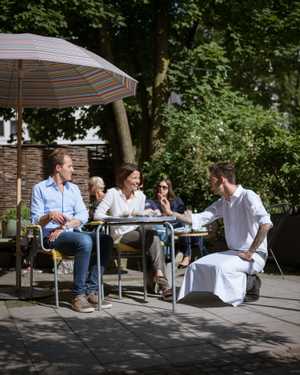
02.
Bar Giornale
Munich
Hotelier and restaurateur Rudi Kull and architect Albert Weinzierl added some Italian charm to Munich’s tree-lined Löwenstrasse when Bar Giornale opened in 2011.
While Kull focused on creating an authentic Italian dining experience, Weinzierl redesigned the former Café Extrablatt with images of Milan in the 1960s in his mind. Teak-panelled walls and upholstered leather chairs glow in the light of Caccia di Miona wall-lamps sourced from a classic Italian electric tram. In the evenings the restaurant and bar fizzles with energy as regulars mingle with neighbours and newcomers.
In the summer months the sunny terrace is packed with guests enjoying the Italian art of dolce far niente (the sweetness of doing nothing) or long brunches at weekends. In the evening chef Michael Ammon serves seasonal Italian fare with an international edge, from scallop-and-lobster spaghetti to tiramisu.
“It’s got a special spirit and a young, fresh audience that instills vitality into traditionally conservative Munich,” says operations manager Andy Slager, who has been working here for eight years. “There is a 94-year-old lady – we call her ‘mama’ – who lives two doors down from the restaurant and she comes by every day. Sometimes even twice.” It really is that good.
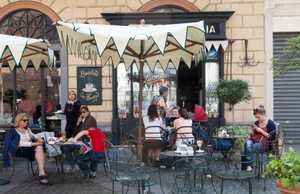
03.
Caffè Al Bicerin
Turin
Standing in the doorway of Caffè Al Bicerin in Piazza della Consolata is Marité Costa, the current owner of this Torinese institution. With her striking blonde hair and warm welcome, Costa is the gatekeeper of an institution in a city with no lack of great cafés. Since opening in 1793 it has been serving its namesake, the Bicerin: a layered mixture of coffee, chocolate and cream. Zabaione, a kind of traditional custard made with Marsala wine is also a house speciality.
The shop windows next door are full of sweets and chocolate, which showcase the elegance of the 1800s, when aristocratic women would come to revive themselves having fasted for mass. “For them the Bicerin was created here at this very counter,” says Costa. With eight marble-topped tables inside and a few outside, people can often be found queuing to get in.
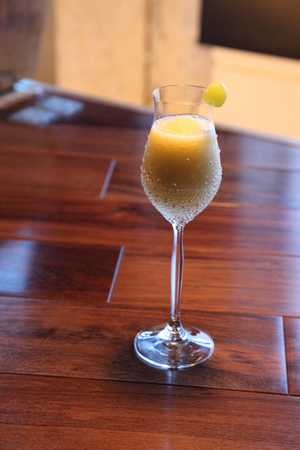
04.
Dreieck Park
Fukuoka, Japan
With its low, semi-triangular wooden bar and blond wooden chairs, Dreieck Park, which opened in 2009, feels more like someone’s living room than a place to grab an excellent mojito – though it certainly is the latter.
Owner Kunihiko Harada, a 39-year-old former car mechanic, had wanted the bar to feel open and uncluttered. As such there are almost no bottles or glasses on display and from every seat you can catch a glimpse of the nearby park. There’s no kitchen, either; instead, Harada lets customers order from a restaurant two floors down.
It’s a surprisingly tranquil setting when you consider that it is just a few blocks from Fukuoka’s busy central commercial district, Tenjin. The bar was designed by Koichi Futatsumata, with the architect also creating a rooftop balcony with a large central platform for communal seating from where you can admire the impressive cityscape.
This is Harada’s second bar and is a well-received follow-up to the hugely popular Klug, which was his first foray into the hospitality business.
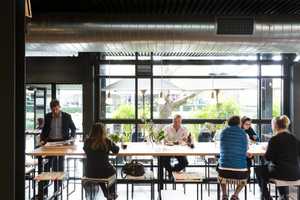
05.
Top Paddock
Melbourne
Nathan Toleman spent a good deal of his early career working for a shopfitter. “I’ve always had a love of design,” he says. “Because I’d studied hotel management I knew about work flow so I designed other people’s cafés. Eventually I figured it was time to design my own.”
Toleman is renowned across Melbourne for his well-designed (and well-attended) cafés. With his wife, chef Sarah Foletta, he opened APTE in the northern suburb of Alphington in 2003. “It was in the middle of nowhere and proved that if you do a café well you become a destination.”
Toleman’s largest venture to date is Top Paddock in Richmond. Built on a former car park, the 160-seat space is his collaboration with Six Degrees Architects. It quickly found its feet as a community café, not least because of new-recruit chef Jesse McTavish. Regulars come from the nearby offices of fashion company Country Road and publisher Hardie Grant. “People use it as their kitchen or an extension of their office,” says Toleman. “They’re here for breakfast and lunch and sometimes coffee in between.”
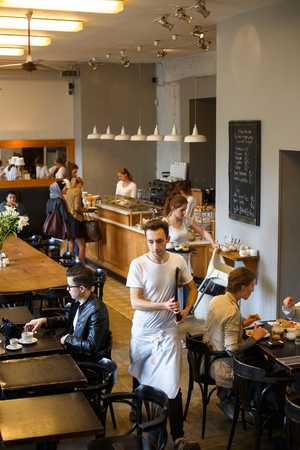
06.
Charlotte
Warsaw
This charming café by day and wine bar by night occupies a sunny slice of Warsaw’s bustling Saviour Square. Inspired by her passion for all things French, Justyna Kosmala founded it four years ago, initially combining it with her job at Poland’s nearby foreign ministry. “I wanted to show that French food can be an everyday affair,” she says. With the motto “bread and wine”, Charlotte takes both seriously, baking sourdough on site and sticking to a French wine list.
Inside, a custom-designed wooden table that can seat 20 people takes centre stage. Every day at 18.00 waiters raise the tabletop using an inbuilt mechanism, replace chairs with high stools and soften the lighting to create a more intimate atmosphere. “A café should be a place to meet and live; buzzing like a beehive,” says Kosmala.
In summer, customers move onto the colonnade-clad square outside. When the tables fill, the patrons enjoy their evening drinks standing up, filling the pavement. “Charlotte is not just a café but a place where the community is formed,” says Kosmala.
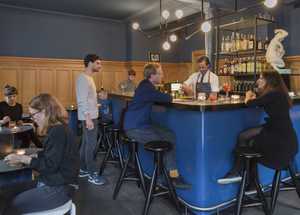
07.
Central
Zürich
“We wanted something that could be relevant 20 or 30 years from now,” says Kaspar Fenkart, one of the three owners of Zürich’s Central bar. And while cocktails may be fashionable, the team’s 2013 revamp of the space was made with a view beyond fleeting fashions.
Central is simple, with unpainted wood panelling, blue-grey ceilings and an intimate layout. “That’s the break-up corner in the back,” a bartender says. “The first dates sit in the front.” But across that arc, or just with friends on weeknights, your perfectly mixed Negroni will taste the same year in, year out.
This consistency is intentional. Central stocks one – and only one – kind of each spirit for its drinks; absinthe from Switzerland and gin from the UK, for example. “We select the best-made example from areas where producers have the most expertise,” says Fenkart.
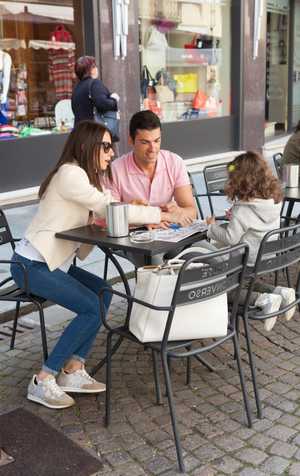
08.
Caffè Converso
Bra, Italy
On a pedestrian street at the end of Via Cavour in the northern Italian town of Bra sits Caffè Converso. It was originally started in the late 1800s and the family of Federico Boglione has owned it since 1992, when his father bought and renovated it.
Showcasing its early 20th-century design, complete with original cherry-wood furniture and marble tabletops, the bar is “refined without being exclusive”, says Boglione. The café prides itself on pastries that range from bite-sized treats to panettones. Outside is a mix of friends meeting by chance, associates stopping for a “hello” and children playing while adults enjoy a glass of wine.
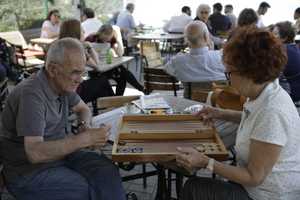
09.
Bebek Kahve
Istanbul
Visible on many a street corner and deeply rooted in Turkish culture, coffee houses in Istanbul are social spots for tea and a game of backgammon.
Bebek Kahve was opened in 1945 by the current owner’s grandfather Ali Osman, when Bebek was little more than a fishermen’s village and waterfront hub for merchants.
This is a third-generation family business and as Bebek has gentrified into a more desirable haunt, the café’s clientele has given way to artists and journalists. The area’s fortunes may have changed but the interiors have remained constant.
The café starts serving breakfast each morning at 06.00 and the buzz of the place only increases from then on. “Staff are like family. I imagine this place to be my home and our customers are my guests,” says co-owner Cigdem Atakan, who runs things with her brother Selahattin.
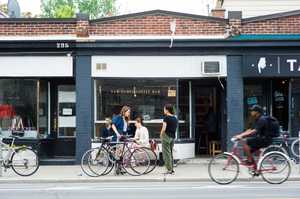
10.
Sam James Coffee Bar
Toronto
Sam James opened his eponymous coffee shop in 2009 on Harbord Street and has since added three more on Bloor, Ossington and King.
Cafés citywide are turning into de facto workspaces, crammed with freelancers gawping at laptops but personal interaction remains the reason James keeps his spaces free from wi-fi.
There isn’t much to see at James’s outposts: a La Marzocco coffee machine, some pastries on the counter, a sugar-and-milk station and a bench. Despite this (or perhaps because of it) the cafés have become lively hubs for the community, with many people lured by coffee but staying put for the conversation.
Walk by the Harbord or Ossington locations on a Saturday morning and you’ll see customers spilling out onto the pavement to catch up on their week. “My shops, by virtue of their size, initiate conversations between strangers and soon-to-be friends,” says James. “It happens really organically and shows that you don’t need communal tables to be communal, just a space where people feel welcome.”

